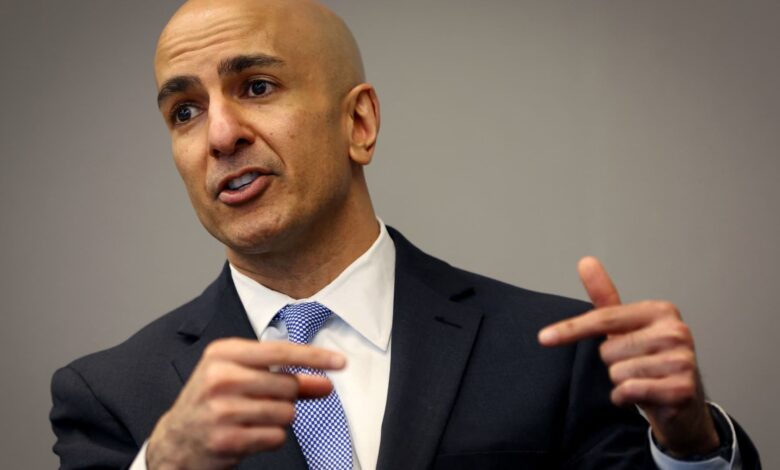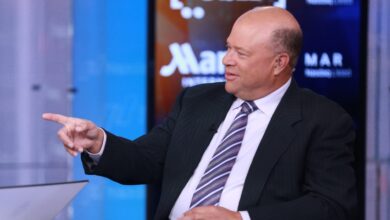Fed’s Kashkari advocates two more rate cuts this year as he sees limited tariff impact on inflation

Minneapolis Federal Reserve President Neel Kashkari said Friday that he expects President Donald Trump’s tariffs to expert minimum long-term pressure on inflation, leaving room for multiple interest rate reductions ahead.
In a CNBC interview, the central banker detailed reasons why he would like the Fed to lower its benchmark borrowing level at each of the remaining two meetings this year in addition to the one the Federal Open Market Committee approved Wednesday. The three total cuts is one more than he had advocated in the prior version of the committee’s “dot plot.”
The more dovish view of rates comes even with inflation running ahead of the central bank’s 2% target. However, Kashkari said a weakening labor market combined with the muted impact of Trump’s tariffs give him reason to advocate for at least a bit easier policy. The fed funds rate is now targeted in a range between 4%-4.25%.
“So it really comes down to, do you believe tariffs are a one-time effect or something more persistent?” he said during the “Squawk Box” interview. “I’m getting more confident that it’s likely a one-time effect, but it’s going to take a couple years for it to play out.”
Kashkari does not get a vote this year on the FOMC but will in 2026.
The committee approved the quarter percentage point cut by an 11-1 margin, larger than some Wall Street observers had predicted given a seemingly wide range of views among officials. This also was the first meeting to include new Governor Stephen Miran, a President Donald Trump appointee who has been harsh in criticism of Chair Jerome Powell and the Fed in general.
However, Kashkari gave no indication there was rancor in the meeting room.
“What was remarkable about this meeting is how unremarkable it was,” he said.
Kashkari detailed his reasoning for switching to three total cuts this year in a piece on the Minneapolis Fed webiste.
In the essay, he noted that inflation expectations remain contained despite worries that the tariffs would cause another spike in prices. At the same time, he sees housing inflation and wage growth both easing.
Still, the consumer price index for August put annual core inflation at 3.1%, well ahead of the Fed’s goal and giving rise to questions over whether central bankers are content with the higher level.
“We’re not okay with 3% inflation,” Kashkari said.




